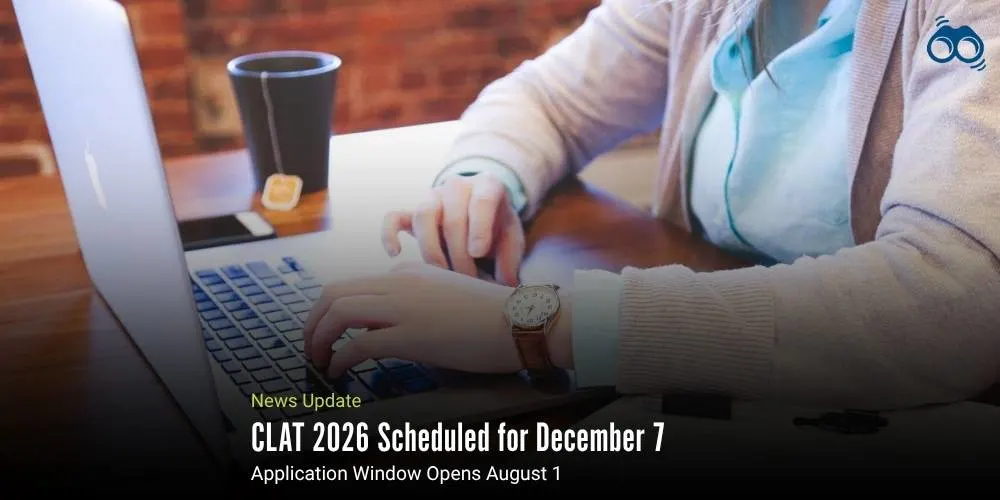Consortium Responds to Past Exam Controversies Ahead of CLAT 2026
Common Law Admission Test Set to Return in Pen-and-Paper Format This December
The Common Law Admission Test (CLAT) continues to be one of India’s most competitive and respected entrance examinations for aspiring law students. Conducted annually by the Consortium of National Law Universities (NLUs), it serves as the primary gateway to undergraduate (UG) and postgraduate (PG) law programmes across 24 participating institutions nationwide.
For the 2026 admission cycle, CLAT is scheduled to take place on Sunday, 7 December 2025, in an offline, pen-and-paper format, from 2:00 PM to 4:00 PM. This decision was finalised during meetings of the Consortium’s Executive Committee and Governing Body held on 20 July 2025. The application process will commence on 1 August 2025 and remain open until 31 October 2025, offering candidates a three-month window to register. A detailed notification outlining the syllabus, exam pattern, marking scheme, application fee, and eligibility criteria is expected to be published shortly on the official CLAT website.
Eligibility Criteria:
- Candidates applying for the CLAT 2026 Undergraduate (UG) exam must have passed Class 12 with a minimum of 45 per cent marks.
- Candidates belonging to SC, ST, and PwD categories must have secured at least 40 per cent marks in Class 12 to be eligible for the UG exam.
- For the Postgraduate (PG) exam, applicants must hold an LLB degree with a minimum of 45 per cent marks.
- Candidates from SC, ST, and PwD categories applying for the PG exam are eligible with a minimum of 40 per cent marks in their LLB degree.
The application fee for CLAT 2025 was ₹4,000 for General and OBC candidates, and ₹3,500 for SC, ST, and BPL categories, with similar pricing expected for 2026. Notably, CLAT 2025 faced significant controversy due to delayed results and disputed questions, which led to multiple court cases. The Supreme Court expressed “deep anguish” over the “callous and casual manner” in which the Consortium had framed the questions, stressing that such lapses undermine the integrity of a test that determines entry into India’s top law universities. CLAT 2026 aims to restore confidence in the examination process through timely scheduling and clearer communication.
Editor’s Note:
The Common Law Admission Test (CLAT) continues to stand as a vital milestone for students aspiring to pursue legal education in India. With 24 National Law Universities participating, it offers direct entry to some of the country’s most distinguished institutions. Given the wide recognition of the exam and the limited number of seats available, CLAT has become fiercely competitive, drawing thousands of applicants each year and demanding not only strong academic ability but also clarity of thought and legal reasoning. For students, success in CLAT can unlock access to high-quality education, robust legal training, and career opportunities in law firms, judiciary, civil services, academia, and beyond. The benefits extend beyond admission, instilling valuable skills such as analytical thinking, time management, and written communication, all of which remain essential in the legal field. To prepare effectively, candidates are encouraged to build a strong foundation in subjects like English, general knowledge, mathematics, legal aptitude, and logical reasoning. Regular practice with mock tests, review of previous papers, and focused reading habits can greatly enhance performance.
Skoobuzz extends its best wishes to all CLAT aspirants and emphasises that CLAT serves as a pathway to personal development, professional success, and a chance to contribute meaningfully to the legal landscape of the nation.














0 Comments (Please Login To Continue)